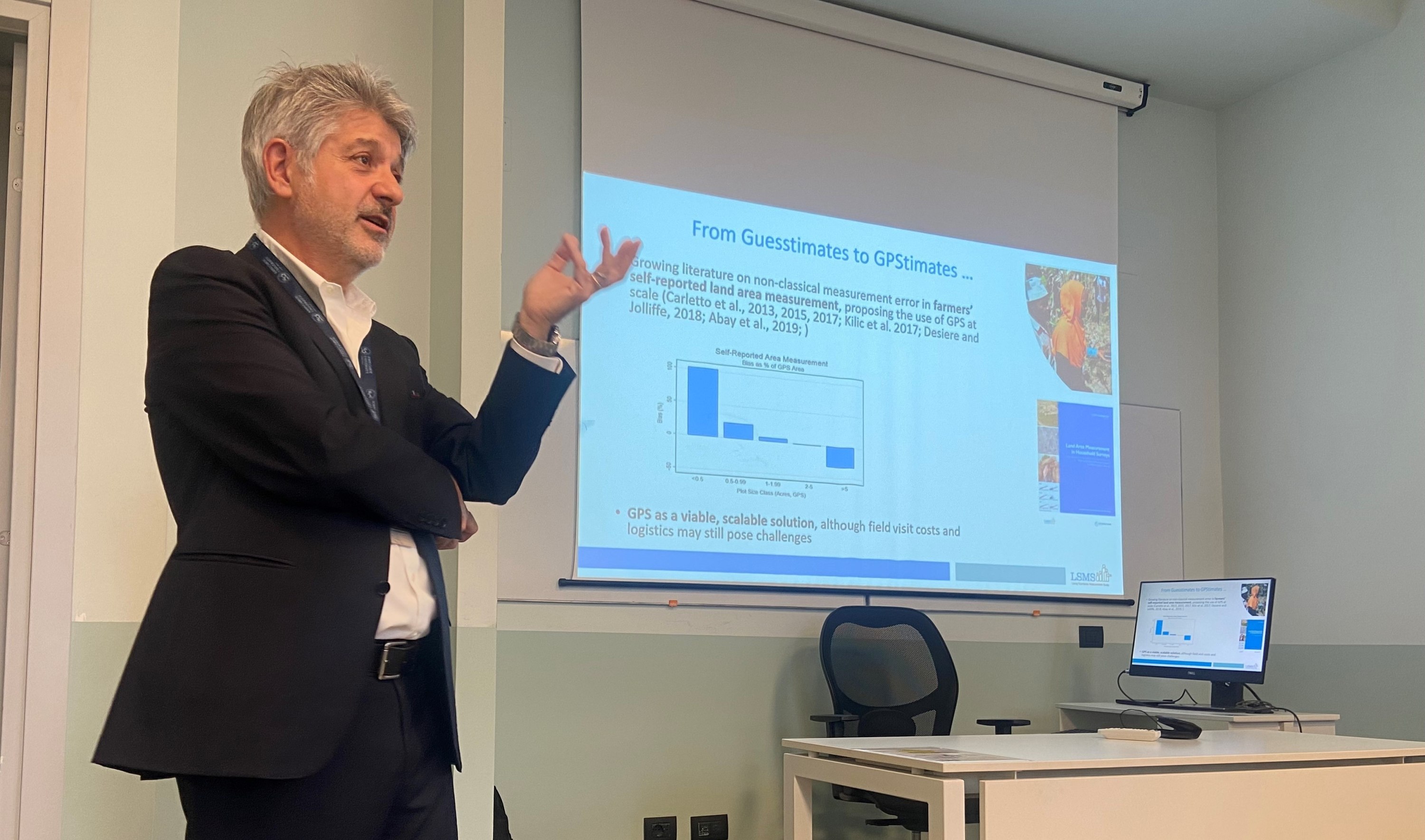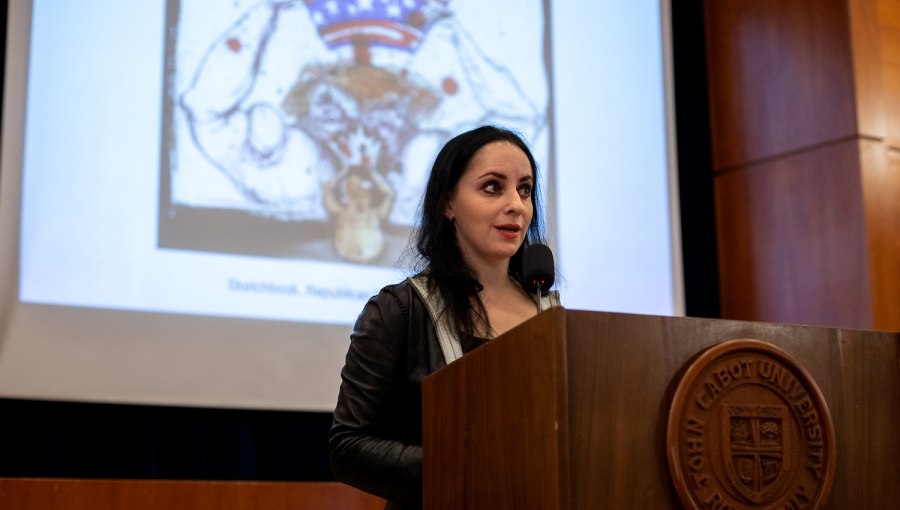Data and Policy Making: JCU Welcomes Gero Carletto from the World Bank
On November 26th, 2024, students in Professor Sergio Scicchitano’s Econometrics class had the honor of attending a seminar by Gero Carletto, Senior Manager in the Development Data Group at the World Bank and the Interim Director of the World Bank Group’s Institute for Economic Development (IED). Students from Professor Barbara Sveva Magnanelli‘s Financial Accounting and Professor Nicola Favia’s Principles of Microeconomics classes also participated. Carletto shared invaluable insights into data systems and how the quality of data affects development policy-making. He then provided examples of the World Bank’s programs aimed at improving data collection and analysis and discussed his own experience of working with socioeconomic data, as well as managing the Living Standards Measurement Study (LSMS). At the end of the seminar, Carletto presented possible ways for students aspiring to work in the development sector to join the World Bank.

Carletto started by explaining the significance of good data systems in fostering development in countries. He emphasized that the world is experiencing massive, interconnected changes, requiring new and better data on climate change, demographic shifts, increasing inequality, conflicts, and economic transformation. Carletto then highlighted the importance of designing effective methods for gathering data rather than relying solely on adjustments after data collection (ex-ante design choices rather than ex-post treatment). He then explained how technological innovations drive continuous improvements in data collection, with new data sources offering opportunities for more granular data at lower cost. He explained both the advancements and challenges of data-driven research, emphasizing how innovations like new technologies, data integration, and imputation methods are driving progress, while issues such as inadequate instruments, low analytical capacity, and limited data accessibility continue to hinder its potential.
Carletto then introduced LSMS, the World Bank’s flagship program focused on strengthening household survey systems in various countries, as well as improving the quality of microdata to better inform development policies. He highlighted how this program enables researchers to gain deeper insights into outcomes across various socioeconomic sectors and allows for more informed development policy-making through its effective data collection methods. LSMS data is publicly available and can be accessed through an open platform.
Another example of an initiative aimed at improving data is the Development Data Partnership — a partnership between international organizations and companies, created to promote the use of third-party data in research and international development. This partnership helps reduce the cost of collaboration and aims to make quality data available to the public. At the end, Carletto introduced the students to the Bank Internship Program and the Junior Professional Associates Program, which are possible pathways for individuals interested in joining the World Bank.
This seminar provided students with a great opportunity to understand the importance of data systems in fostering social change, as well as potential pathways for joining the World Bank.
(Sofija Kaluderovic)





